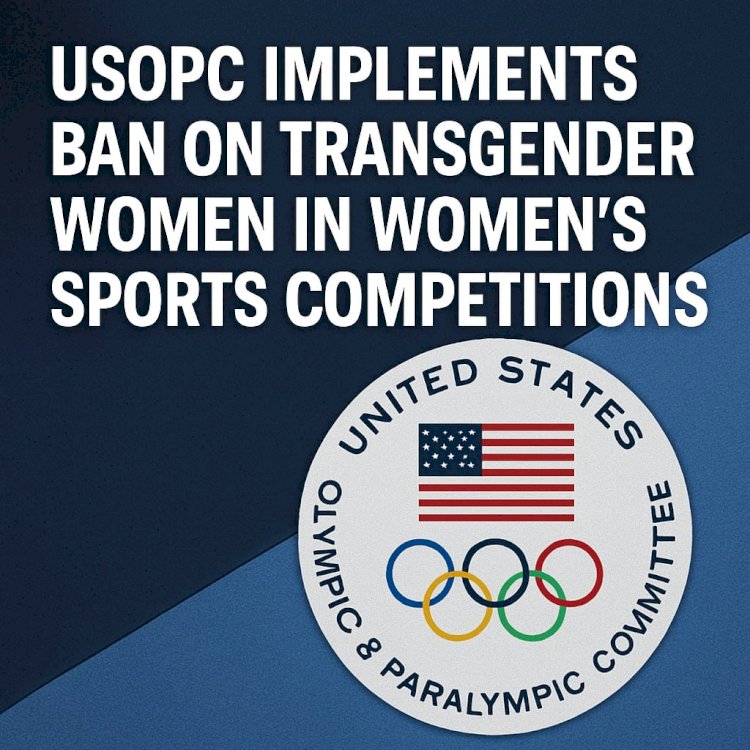USOPC Implements Ban on Transgender Women in Women’s Sports Competitions

July 23, 2025
In a move stirring nationwide controversy, the United States Olympic and Paralympic Committee (USOPC) has announced a new policy effectively barring transgender women from competing in women’s sports events. The decision, revealed on July 22, 2025, is in line with President Donald Trump’s Executive Order 14201, which aims to restrict sports participation based on sex assigned at birth.
Defining the New Rules
The USOPC’s revised Athlete Safety Policy centers on preserving fairness and safety in women’s sports. Although the policy does not explicitly mention transgender athletes, it requires that competitions be limited to athletes who were designated female at birth. This mandate applies across all national sports federations affiliated with the USOPC and impacts contests from grassroots to elite levels.
What’s Behind Executive Order 14201?
Signed earlier this year, Executive Order 14201 categorizes “sex” as the biological status assigned at birth. It directs federal agencies to enforce this definition within educational institutions and sports organizations. Moreover, the order threatens to withhold federal funding from bodies that allow transgender girls or women to join female sports teams.
Public and Stakeholder Responses
The USOPC’s ban has drawn sharp criticism and strong support in equal measure. Advocates for transgender rights describe the policy as exclusionary and harmful to transgender athletes’ mental health and opportunities. Conversely, supporters argue that restricting participation is necessary to ensure fair competition and protect cisgender women’s athletic opportunities.
Globally, sports federations differ in their approach to transgender participation. Some have adopted similar bans, while others continue to permit sports bodies to establish their own criteria for inclusion.
Impact on Future Olympic Games
With the 2028 Los Angeles Olympics approaching, the USOPC’s new stance raises pressing questions about how transgender athletes will be treated in future international events. The International Olympic Committee has yet to finalize a universal policy, leaving national organizations to set their own standards for transgender athlete eligibility.
Looking Forward
The USOPC’s enforcement of this ban marks a pivotal moment in the evolving dialogue about gender identity and fairness in athletics. As debates continue, the sports community faces the challenge of balancing inclusivity with competitive equity.

 content-team
content-team 


















